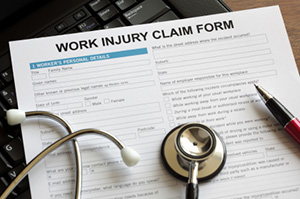PA Workers’ Compensation Coverage Questions

Who is responsible for providing workers’ compensation benefits?
Your employer is required by law to provide workers’ compensation coverage to their employees. Those who are self-employed may be rare exceptions to this law.
Some employers do not provide workers’ compensation coverage for their employers, the so-called uninsured employers. If your employer does not have workers’ compensation insurance and you were injured on the job, you may be able to file a claim with the Pennsylvania Uninsured Employer Guaranty Fund. You only have 45 days after you learn your employer is uninsured to file your claim with this State Fund. You must also file an incident/accident report with your employer within the first 120 days following your injury. In addition, you must file a claim with the Pennsylvania Department of Labor & Industry to petition payment from the Fund, and a “Notice of Claim” against your uninsured employer.
Are all workers covered under Pennsylvania workers’ compensation?
Most Pennsylvania full-time and part-time workers are covered by the Workers’ Compensation Act. Generally, those who are not covered are self-employed.
What injuries and illnesses are covered?
Most injuries and illnesses caused by a work-related accident or a condition are covered under the Pennsylvania Workers’ Compensation Act. The only injuries that may occur in the workplace and are not covered under the Act are:
- Injuries that are intentionally self-inflicted, including suicide.
- Injuries that are caused by your own intoxication or illegal drug use.
- Injuries that result when a co-worker attacks you.
- Injuries that result when a person unaffiliated with your employer or your workplace attacks you for some reason not related to your job.
- Injuries that are caused by a violation of the laws.
Can you sue your employer or co-worker for causing your injury or illness?
Generally, you cannot sue your employer or co-worker for causing your injury or illness. You can only file for workers’ compensation to pay for your lost wages and medical bills. You are not entitled to receive money for pain and suffering as a result of the work-related injury or illness.
There are two exceptions:
- If your injury or illness was caused by a defective product, you may have a personal injury case against the manufacturer of the product.
- If a co-worker assaults you because of a personal issue, you may be able to file a civil lawsuit against your co-worker.
Can you sue your employer if your injury or illness was caused by a defective product?
In Pennsylvania, the Workers’ Compensation Act is an injured employee’s exclusive remedy even if your employer may have been negligent in causing your injury. However, if a defective product caused your injury, you can file a personal injury lawsuit in addition to a workers’ compensation claim. In this situation, the manufacturer, supplier, distributor, or retailer of the defective product may be liable if it:
- Failed to adequately test or inspect the product.
- Created the defect in the product.
- Failed to discover the defect in the product.
- Failed to discover that the product could be defective or dangerous.
- Failed to adequately warn of the risks associated with the product.
- Failed to properly manufacture the product.
- Failed to properly install the product.
You live in Pennsylvania but work in a different state. Where do you apply for workers’ compensation benefits?
Pennsylvania’s workers’ compensation benefits are more favorable to the employee than those in many other states. So, it is in your best interests to see if you can receive workers’ compensation payments in Pennsylvania.
You may be able to receive Pennsylvania workers’ compensation payments if:
- You work in Pennsylvania.
- You live in Pennsylvania but work in another state.
- You were hired by a company based in Pennsylvania.
If you are receiving PA workers’ compensation payments and your employer offers you a light-duty job, or a job that is different than the job you held before your injury, do you have to take it?
If your employer can provide a job within your medical restrictions, such as a medium- or light-duty job, and you choose not to take it, your employer can ask a workers’ compensation judge to either modify or terminate your benefits.
You feel like you are being forced back to work, but you are not ready to return. Will you lose your workers’ compensation coverage if you refuse to return?
If your employer’s doctor feels that you are not able to return to work, most likely your employer will not pressure you to return to work.
But, what if your employer’s doctor feels that you are able to return to work, while at the same time your own doctor disagrees? In this case, you can refuse to return to work. Your employer then may file a “Petition to Terminate, Modify, or Suspend Benefits,” but your payments and benefits will not change until your case has been reviewed by a workers’ compensation judge.
What if your own doctor feels you are ready and able to return to work, but you disagree and refuse to return to your job? The likelihood is that you will lose your workers’ compensation benefits.
If have additional questions regarding coverage, contact our workers’ compensation lawyers to schedule a free consultation, or call us, toll-free, at (855) 589-9458.


